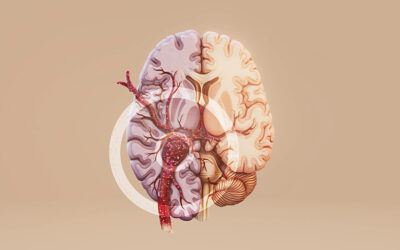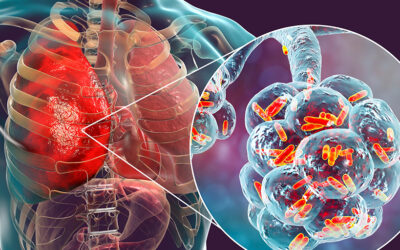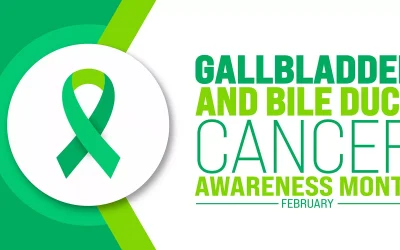Feeling Bloated? Here’s Why It Happens and Ways to Get Relief

Bloating is a common digestive issue characterised by a feeling of fullness or tightness in the abdomen. In India, bloating is quite prevalent due to dietary habits, such as consuming spicy foods and excessive salt. Other factors, like food intolerances or digestive conditions, can also contribute to this condition. While bloating is typically temporary, it can be disruptive to daily life. This article explores the common causes of bloating and offers practical, easy-to-follow remedies to help alleviate the discomfort. But first, let’s understand the basics.
Table of Contents
ToggleWhat is bloating?
Bloating occurs when the gastrointestinal tract fills with excess gas or air, which can be caused by a variety of factors such as diet, digestive issues, or certain medical conditions. The stomach may appear visibly distended, and individuals may experience discomfort, gas, or abdominal pain. While bloating is often temporary, it can be persistent for some individuals and may require attention if it interferes with daily life or is accompanied by other concerning symptoms.
What are the Common Causes of Bloating?
Bloating is often the result of various factors that affect digestion. Here are the most common causes:
Dietary Habits
The foods we consume can greatly impact bloating. In India, the consumption of spicy foods, fried dishes, large meals, and carbonated drinks can lead to gas buildup and indigestion, causing bloating. Excessive salt in processed foods can also cause water retention, making the abdomen feel bloated.
Food Intolerances
Many people are sensitive to certain foods, such as dairy products (lactose intolerance) or gluten (found in wheat and other grains). When these foods aren’t digested properly, they can cause bloating, discomfort, and gas production.
Irritable Bowel Syndrome (IBS)
IBS is a chronic gastrointestinal condition that can lead to bloating. People with IBS often experience bloating alongside other symptoms, such as cramping, diarrhoea, or constipation.
Poor Digestion
Digestive issues, such as gastric reflux or slow digestion, can cause food to sit in the stomach longer, leading to gas buildup and bloating. Indigestion and the inability to break down food properly can worsen bloating.
Overeating or Eating Too Quickly
Eating large meals or eating too quickly can cause air to be swallowed along with food, leading to bloating. The body may also struggle to break down large amounts of food, resulting in discomfort.
Gut Health Imbalance
An imbalance in gut bacteria (known as the microbiome) can lead to bloating. Poor gut health, often caused by stress, a poor diet, or antibiotics, can impair digestion and lead to bloating.
Hormonal Changes
In women, hormonal fluctuations, particularly during menstruation or pregnancy, can cause bloating. The hormonal changes during these periods can lead to water retention and digestive disturbances, making the abdomen feel swollen or uncomfortable.
Stress
Emotional stress or anxiety can affect the digestive system, leading to bloating. When the body is stressed, it can disrupt normal digestive function, resulting in bloating, gas, and discomfort.
Read more – Dehydration: Causes, Symptoms, and Treatment Options
What Are the Symptoms of Bloating?
Bloating presents through several common signs that can range from mild discomfort to more significant digestive issues. The primary symptoms include:
- Abdominal Discomfort and Fullness: A feeling of fullness or tightness in the abdomen is the most prominent symptom. The stomach may feel swollen or larger than usual, especially after meals, causing a sense of heaviness or discomfort.
- Excess Gas and Belching: Increased gas production leads to symptoms such as belching or flatulence. The accumulation of gas in the digestive system can cause the stomach to feel bloated and lead to temporary relief after burping.
- Abdominal Pain and Cramping: Bloating may also be accompanied by abdominal pain or cramping, which can range from mild to sharp. This pain might come in waves or linger for longer periods, often aggravated by certain foods or eating habits.
- Changes in Appetite and Bowel Movements: Some individuals may experience a loss of appetite due to the discomfort caused by bloating, while others may notice changes in bowel movements, such as constipation or diarrhoea. This is particularly common in people with digestive conditions like IBS (Irritable Bowel Syndrome).
Read more – Food Poisoning vs Stomach Infection: Symptoms, Causes & When to Seek Help
How Can You Relieve Bloating Quickly?
Relieving bloating quickly involves a combination of simple lifestyle changes, home remedies, and practices that help ease discomfort. Here are a few effective ways to reduce bloating:
Drink Plenty of Water
Staying hydrated helps flush excess sodium from the body, which can contribute to water retention and bloating. Drinking warm or room temperature water can also assist digestion and alleviate discomfort. Drinking water with lemon can promote better digestion.
Gentle Exercise or Movement
Light physical activity, such as walking, yoga, or stretching, can help move trapped gas through the digestive tract and reduce bloating. Moving around after meals can prevent gas buildup, making it easier for the body to digest food.
Herbal Teas
Certain herbal teas, such as ginger tea, peppermint tea, or fennel tea, are known for their ability to reduce bloating. These teas have natural properties that help soothe the stomach, ease digestion, and release trapped gas.
Apply Heat
Applying a warm compress or heating pad to the abdomen can help relax the muscles and ease discomfort caused by bloating. Heat can also improve circulation in the area and help expel gas trapped in the digestive system.
Avoid Carbonated Drinks
Carbonated drinks contain gas bubbles that can contribute to bloating. Avoiding sodas, sparkling water, and other fizzy beverages can prevent excess gas from entering the digestive system and causing further discomfort.
Eat Smaller, More Frequent Meals
Eating smaller portions more frequently throughout the day can help prevent overeating, which can strain the digestive system. This helps reduce the feeling of fullness and allows the digestive system to process food more efficiently.
Probiotics and Digestive Enzymes
Probiotics, found in foods like yogurt or supplements, help balance gut bacteria and improve digestion. Digestive enzymes, available in over-the-counter supplements, can also aid in breaking down food and reducing gas buildup.
Avoid Eating Too Quickly
Eating too fast can lead to swallowing excess air, which contributes to bloating. Take time to chew food thoroughly and enjoy meals slowly to reduce air intake and help digestion.
What Are the Best Home Remedies for Bloating Relief?
Home remedies can provide effective relief from bloating by addressing the root causes, such as gas buildup, indigestion, or food intolerance. Here are some of the best natural remedies for relieving bloating:
- Ginger
Ginger is well-known for its digestive benefits. It helps to reduce bloating by stimulating the production of digestive enzymes, which can aid in the breakdown of food and gas. Drinking ginger tea or chewing a small piece of fresh ginger can provide quick relief. - Peppermint
Peppermint has natural antispasmodic properties that can help relax the muscles in the digestive tract and relieve gas and bloating. Drinking peppermint tea or sucking on peppermint lozenges can soothe the stomach and reduce bloating. - Fennel Seeds
Fennel is often used as a natural remedy for bloating due to its ability to reduce gas and improve digestion. Chewing on fennel seeds after meals can help reduce bloating and alleviate abdominal discomfort. Fennel tea is also effective for soothing digestive issues. - Apple Cider Vinegar
Apple cider vinegar can help balance stomach acid levels and improve digestion, making it an effective remedy for bloating caused by indigestion. Mix one to two teaspoons of apple cider vinegar with a glass of warm water and drink it before meals to support digestion and reduce bloating. - Warm Water with Lemon
A simple yet effective remedy, warm water with lemon helps stimulate digestion and detoxify the digestive system. The acidity of lemon can help break down food and reduce bloating. Drinking this mixture first thing in the morning or after meals can be beneficial. - Cumin Seeds
Cumin is known for its digestive properties and can help alleviate bloating by improving digestion and reducing gas. To relieve bloating, mix cumin powder with warm water or add cumin seeds to your meals. Cumin tea can also be a soothing remedy. - Probiotics
Probiotics are beneficial bacteria that support gut health and help regulate digestion. Consuming foods rich in probiotics, such as yogurt, kefir, or fermented foods, can improve gut flora and reduce bloating. Probiotic supplements are also available and may provide additional benefits.
When to Seek Medical Help for Bloating?
While bloating is often a temporary issue that can be resolved with simple remedies, there are instances where it could signal a more serious underlying condition. It’s important to know when bloating might require medical attention. Here are some signs that indicate it’s time to seek professional help:
- Severe or Persistent Abdominal Pain
If bloating is accompanied by severe abdominal pain that doesn’t subside or becomes more intense, it could be a sign of a serious issue, such as intestinal obstruction or inflammatory bowel disease (IBD). Immediate medical attention should be sought if the pain is sharp or persistent. - Unexplained Weight Loss
Significant weight loss without trying, in combination with bloating, could indicate an underlying condition such as cancer, malabsorption disorders, or chronic gastrointestinal diseases. If weight loss occurs alongside bloating, it is important to consult a doctor for further evaluation. - Blood in Stools or Vomiting
Blood in the stools or vomit is a serious symptom that could be related to gastrointestinal bleeding, ulcers, or other conditions like gastrointestinal cancers. This is a red flag, and immediate medical consultation is required. - Difficulty Breathing
If bloating is accompanied by shortness of breath or difficulty breathing, it could indicate a more serious condition, such as peritonitis (infection of the abdominal lining) or a cardiovascular issue. Seeking medical help is crucial in these cases. - Changes in Bowel Movements
Significant changes in bowel habits, such as chronic diarrhoea, constipation, or alternating between the two, along with bloating, may suggest IBS, IBD, or celiac disease. If these symptoms persist for an extended period, it is important to consult a healthcare provider. - Fever
If bloating is accompanied by a fever, it may point to an underlying infection or inflammation in the digestive system, such as gastroenteritis or appendicitis. A fever along with bloating should not be ignored, and medical attention should be sought promptly. - Inability to Pass Gas or Stool
A complete inability to pass gas or stool, especially when accompanied by bloating, may indicate a bowel obstruction, which can be life-threatening if left untreated. Immediate consultation with a doctor or visit to the emergency room is advised.
Conclusion
Bloating is a common digestive issue that can affect anyone, but understanding its causes, symptoms, and effective remedies can help alleviate discomfort and improve daily life. While bloating is often manageable with simple lifestyle changes and home remedies, persistent or severe symptoms may indicate underlying health conditions that require medical attention. Graphic Era Hospital offers comprehensive care for digestive health, with expert gastroenterologists available to provide personalised solutions. Contact Graphic Era Hospital today to schedule a consultation and take the first step toward a healthier, bloating-free life.
By Specialities
- Bariatric Surgery
- Cancer Care
- Cardiology
- Dental
- Dermatology
- Diabetes & Endocrinology
- Endocrinology and Diabetes
- ENT (Ear Nose Throat)
- Eye Care
- Gastroenterology
- Haematology
- Health Awareness
- Health Care
- Health Tips
- Hematology
- Hepatology
- Internal Medicine
- Mental Health and Behavioural Sciences
- Metabolic
- Neonatology
- Nephrology
- Neurology
- Nutrition & Dietetics
- Obstetrics & Gynaecology
- Oncology
- Ophthalmology
- Orthopaedics
- Paediatric
- Physiotherapy & Rehabilitation
- Plastic and Reconstructive Surgery
- Psychology
- Pulmonology
- Rheumatology
- Spine
- Urology
Recent Posts
- A Complete Guide to Blood Clots in the Brain
- Heart Attack: Symptoms and Treatment
- World Obesity Day 2026: Understanding, Preventing, and Managing Obesity
- Bacterial and Viral Pneumonia: Causes, Symptoms, and Treatment Options
- World Hearing Day 2026: Empower Yourself to Protect and Improve Your Hearing
Need expert medical advice?
Share your details and our healthcare specialists will reach out to assist you.
By proceeding, you acknowledge and agree to our Privacy Policy, Terms of Use, and Disclaimer.




















